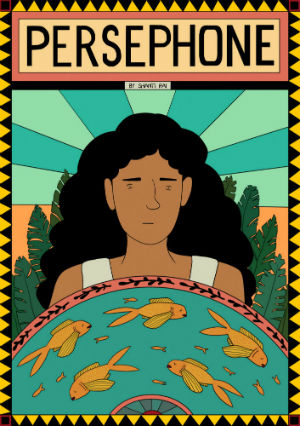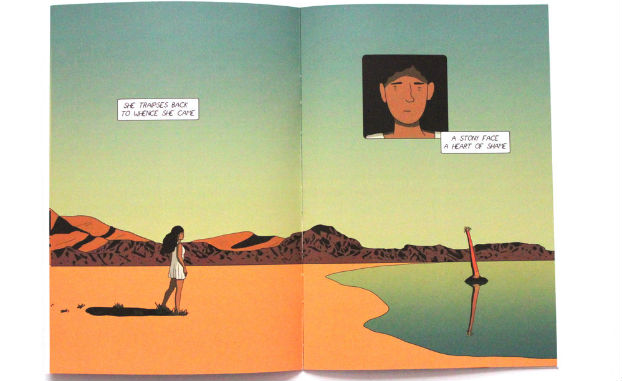The myth of Persephone and her abduction by Hades, the God of the Netherworld is an allegorical tale with a familiarity that extends far beyond the focused interests of the classical scholar. A narrative metaphor to explain the changing seasons it recounts how Hades was so taken by Peresphone, the daughter of Demeter the Goddess of the Harvest, that he spirited her away to his infernal realm with the aim of making her his wife.
The details of Demeter’s quest to discover her daughter’s fate have differing embellishments in the many versions of the story but the common denominator is that her grief affects her godly duties and, as a result, the crops fail to grow. With the help of the Sun God Helios and the intervention of the mighty Zeus himself, Persephone is located in the Underworld.
 But the cunning Hades has ensured that his obligation to return Persephone to her mother is one that will come with restrictions. Having fed her with pomegranate seeds – the food of the dead in his stygian world – she is forced to spend half the year with him and only half the year in the mortal plane with Demeter. Thus are the seasons born. Demeter’s despair when Persephone is forced to return to Hades’ kingdom below is embodied in the winter months and her happiness at her daughter’s subsequent return giving rise to the summer ones.
But the cunning Hades has ensured that his obligation to return Persephone to her mother is one that will come with restrictions. Having fed her with pomegranate seeds – the food of the dead in his stygian world – she is forced to spend half the year with him and only half the year in the mortal plane with Demeter. Thus are the seasons born. Demeter’s despair when Persephone is forced to return to Hades’ kingdom below is embodied in the winter months and her happiness at her daughter’s subsequent return giving rise to the summer ones.
That’s the legend in its basic form and it’s the story that Shanti Rai – one of this year’s Broken Frontier ‘Six Small Press Creators to Watch’ – has used as the basis of her 16-page minicomic Persephone. Rai’s perspective however is far more nuanced and subtle that a straightforward retelling of the original. Instead she hones in on the goddess’s annual return to the Netherworld and gives us a brief but intensely poignant account of a woman trapped between existences.
Those who remember my review of Rai’s comic KO last year at Broken Frontier (work produced after Persephone) will see echoes of Persephone’s story in that longer-form offering. Both deal with a convergence of the otherworldly and the mortal and involve powerful supernatural forces toying with the lives of others at their whims. But while KO uses its largely multi-panelled pages to create a sense of storybook pacing, Persephone presents mostly single imagery to immerse us in an emotional morass – a feeling of inevitability and fatalism at its protagonist’s inescapable plight as she makes her return to the awaiting darkness.
That palpable impression of the oppressive – of being a slave to an unwanted destiny – is heightened by the rhythmic pulsing of the book’s accompanying captions as Persephone trudges through a harsh and forbidding environment. This journey ever downwards involves a submerged portal as Rai’s clever transitional employment of colour shifts from brighter hues to muddy, stifling tones as Persephone gets closer to her fearful destination.
There are the same deft touches we saw in the pages of KO with multiple panels sitting within larger images to evoke the passage of time early on. A very neat tactile use of smaller fold-out pages within the centrespread represents the pomegranate seeds that doomed Persephone, giving them an aura of both sinister otherness and something indefinably metatextual.
A strikingly immediate and – despite its comparative brevity – perhaps an even more tangibly connective reading experience than its successor, Persephone summarises its subject’s plight in this solitary and affecting vignette with an emotional rawness that a traditional and drawn-out retelling of the myth would struggle to capture with the same intuitive clarity and empathetic depth.
For more on the work of Shanti Rai visit her site here. Persephone is available online here priced £5.00.
For regular updates on all things small press follow Andy Oliver on Twitter here.
Review written by Andy Oliver

















